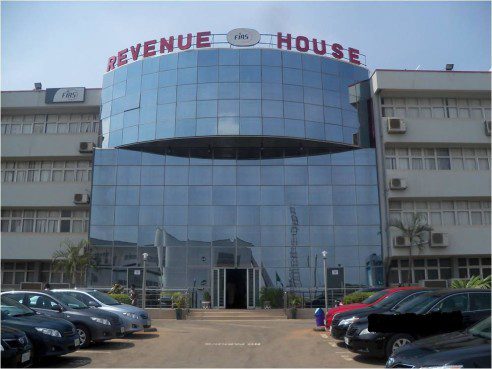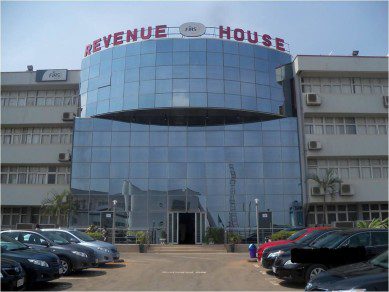Economic Issues
Taxes, Taxes, And The Death Of Businesses -By Uddin Ifeanyi


In the interim, the apparently useful expedient of increasing the tax burden on those businesses that already fall within the net can only be counter-productive. Such policies only end up driving up the costs of doing business here, or (which is the same thing) eroding returns to capital from investments in the economy.
“We are not feeling good that we are still outside the 2,000 mark for the world. Out of the 1,000 global universities there are only five African universities, three from South Africa and two from Egypt.” Thus, the executive secretary of The Education Tax Fund (TETFund), describing how relatively low investment in the education sector has held back the economy vis-à-vis its continental peers. Sadder, still, with this comparison, he was also justifying a proposal by the Federal Ministry of Education to increase, by 200 basis points, (to 4 percent) the education tax paid by companies operating in Nigeria (outside of the oil and gas sector). Apparently, the new monies raised by the much higher tax rate would assist the economy bridge the identified gap in the education sector.
If you alter the complexion of a conversation sufficiently well enough, you apparently obviate the need for more thorough discussions of its underlying narratives. In the case of domestic education, the Federal Ministry of Education has simply moved the references to the quantum of funds available for its intervention in the sector, and away from serious worries about how well current funds may have been deployed. This latter consideration is course for much concern because of recent revelations on how government funds may have been re-directed over the years by highly placed functionaries. Beyond this primary worry, though, it is obvious that without addressing the efficiency of our public expenditure management framework, any additional appropriation that would pass through that platform would be equivalent to throwing good money after bad.
These worries aside, arguably, one of the strongest arguments for another such shift in the parameters of our ongoing dialogue is the recognition of the fact that the public sector’s mission statement rarely disposes it to the cost-benefit head-scratching that is the norm in the private sector. Thus, economies that are more serious than ours have reached the point where governments agree that where resources become scarce, and the need for certain services grow beyond the public sector’s reach, it is increasingly recommended that policy makers find market solutions to supplying these needs.
Unfortunately, the one lesson clearly missing from our development curriculum is the one that teaches us that market solutions depend for their success on the prevalence of conducive operating environments. As the problems in the United States over “tax inversion” indicates, a positive tax environment is a necessary condition for doing business. In the American example, US companies are shrugging off the burden of a combined federal and state tax rate of around 39 percent by relocating to less burdensome tax jurisdictions (for comparison, company tax in the OECD is estimated at an average of 29 percent).
My favourite example of this dynamic is taken off the street hawker sub-section of businesses in and around the Marina in Lagos State. For their efforts, these micro-businesses must pay a daily access charge of N200 if they are to ply their trade unmolested. Government and its retinue of consultants would ordinarily hold this group up as part of the segments that slip through its tax net, depressing its overall tax take. Nevertheless, the truth is that our small businesses do pay their “taxes”. The problem that needs tackling is that non-state actors are the beneficiaries of such payments.
Against these examples, it is often argued that government’s tax take in Nigeria is piffling. However, what this means is that as a share of GDP, government’s earnings from tax is not as much here as it is in other places. Fair enough. But what does this mean? That we have lower tax rates? Or, that we are not collecting all that we should on current assessments? Not to worry. When you consider that non-oil and gas businesses operating in Nigeria are expected to pay income tax at 30 percent of total profit in addition to an education tax calculated at two percent of assessable profit, then the applicable tax rate here (without adding the sundry charges at the provincial and municipal levels) might be just that much higher than elsewhere.

Then there is the not too small worry over the informal sector — supposedly a large share of the economy, because of the failings of the formal sector. Part of the causes of the “informalisation” of entrepreneurship in economies like ours is the relatively high cost of businesses remaining formal. Moreover, because a failing state is arguably one of the largest cost components in this mix, the informal sector has recourse to Mafia-type organisations for their regulation.
My favourite example of this dynamic is taken off the street hawker sub-section of businesses in and around the Marina in Lagos State. For their efforts, these micro-businesses must pay a daily access charge of N200 if they are to ply their trade unmolested. Government and its retinue of consultants would ordinarily hold this group up as part of the segments that slip through its tax net, depressing its overall tax take. Nevertheless, the truth is that our small businesses do pay their “taxes”. The problem that needs tackling is that non-state actors are the beneficiaries of such payments.
A strengthening of the state, in terms of the efficiency with which it allocates resources is then recommended if we must mainstream the shadow economy. In the interim, the apparently useful expedient of increasing the tax burden on those businesses that already fall within the net can only be counter-productive. Such policies only end up driving up the costs of doing business here, or (which is the same thing) eroding returns to capital from investments in the economy.
In a world in which capital is increasingly fungible, this might be the unplanned outcome of government’s new tax raising schemes.
















